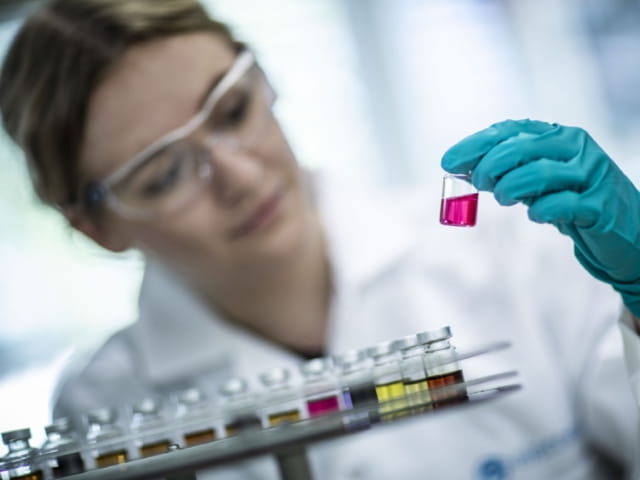Expert Water Testing Services Orlando: Safeguard Your Water Top Quality
Expert Water Testing Services Orlando: Safeguard Your Water Top Quality
Blog Article
Learn Exactly How Water Testing Can Find Impurities and Shield Your Family members's Well-being
Understanding the significance of water screening is essential for guarding your family's health, as our water supply can harbor undetected dangers. From germs to heavy metals, impurities present major threats, frequently undetected without correct analysis. By checking out the auto mechanics of water screening, one can uncover the invisible threats lurking in apparently excellent water resources. Yet, exactly how do you determine which tests are necessary for your home, and what steps should be taken when prospective risks are revealed? As we navigate these inquiries, the course to making sure water safety and a much healthier living setting becomes clearer.
Importance of Water Testing
Identifying the essential duty water plays in sustaining life, the importance of water screening can not be overstated. Water is a basic source, vital for drinking, food preparation, sanitation, and various commercial processes. Its quality directly impacts public health and health. As a result, making sure that water is devoid of damaging substances is vital for preserving healthy neighborhoods and ecosystems.
Water screening functions as an aggressive procedure to identify prospective dangers that might endanger water high quality. Via methodical analysis, it aids spot physical, chemical, and biological criteria that could present dangers to human health and wellness. Normal testing allows for the early discovery of concerns, facilitating timely treatments to avoid prevalent contamination and linked wellness troubles.
Additionally, water screening supports regulatory conformity, making certain that water companies satisfy recognized safety standards and guidelines established by governmental authorities. It promotes transparency and responsibility, developing public rely on the supply of water system. Furthermore, testing gives valuable data that educates water monitoring techniques, enabling lasting usage and preservation of this valuable resource.
In significance, water screening is a vital device that safeguards public health, guarantees governing adherence, and promotes the lasting management of water resources. Its significance in protecting both neighborhoods and people can not be ignored.
Usual Water Contaminants
Amongst the various components that can jeopardize water quality, typical water pollutants consist of an array of physical, chemical, and biological materials that present significant dangers to human health and the atmosphere. Physical impurities commonly entail sediments or natural products put on hold in water, which can impact clearness and preference.
Organic impurities, largely microorganisms, viruses, and protozoa, develop from animal and human waste getting in water systems. Pathogens such as E. coli, Giardia, and Cryptosporidium are notorious for causing stomach illnesses and can be especially dangerous to little ones, the elderly, and those with jeopardized immune systems. Nitrates and nitrites, often originating from plant foods, pose another wellness risk, particularly to infants, potentially leading to problems like methemoglobinemia or "blue child syndrome."
Furthermore, emerging impurities, including drugs and individual care products, have elevated worries because of their perseverance and unidentified long-lasting effects. Recognizing these impurities is critical for applying efficient water treatment techniques and ensuring secure drinking water.
How Water Testing Works
Recognizing the range of contaminants in water underscores the importance of effective testing approaches to guard public health. Water screening is a methodical procedure designed to identify and evaluate various contaminations that might present threats to human health and wellness. This entails a collection of analytical procedures that detect contaminants such as bacteria, heavy metals, organic chemicals, and various other pollutants. The screening procedure typically starts with example collection from the water source, ensuring that examples are uncontaminated and representative during the collection process.
When samples are accumulated, they undergo lab analysis using various methods. Chemical screening usually includes spectrometry or chromatography, both of which can determine and measure particular chemical substances. For microbiological screening, techniques such as membrane purification or enzyme substrate examinations are used to discover pathogenic microorganisms. Additionally, physical features like ph, color, and turbidity are assessed to supply understanding right into the overall high quality of the water.
The exact techniques used in water testing depend on the specific impurities of issue and the water's planned usage. By consistently using these strenuous testing methods, researchers and public health officials can make certain the safety and top quality of water, consequently safeguarding neighborhoods from prospective health risks.
Choosing the Right Test
The very first step is evaluating the water resource-- be it community, well, or surface water-- as each has distinct dangers. Community water could require screening for disinfectant by-products, while well water might require screening for nitrates, germs, and hefty metals.
Next, consider environmental variables and current occasions. Neighboring farming tasks may require testing for pesticides and herbicides, whereas commercial areas can call for checks more helpful hints for chemical toxins. Additionally, any changes in water appearance, smell, or taste ought to trigger particular testing for usual impurities like lead, chlorine, or biological virus.
Expert water screening solutions use thorough kits that target a large variety of potential contaminants. These kits usually straighten with standards set by the Environmental Security Firm (EPA) or regional wellness departments. For a much more customized method, seeking advice from with a water quality specialist can offer understandings right into which particular tests are needed based on local issues and specific health and wellness requirements, guaranteeing the security of your home's health.

Maintaining Water Security

Along with testing, appropriate maintenance of water supply plays a crucial role. This includes inspecting and servicing pipes systems, storage containers, and septic systems to stop leaks or backflow that can introduce impurities - Water Testing Service. Utilizing water purification systems developed visit site to resolve specific neighborhood issues can additionally protect versus contaminations, providing an additional layer of protection
Public understanding and education are equally vital in maintaining water safety and security. Communities ought to be educated regarding possible risks related to regional water resources and the essential actions to alleviate them. Motivating public involvement in water safety and security initiatives fosters a cumulative obligation that enhances total effectiveness.
Ultimately, a comprehensive approach that integrates routine testing, system upkeep, and area participation is important in protecting water top quality. By doing so, families can be ensured of secure and clean water, protecting their health and health.

Conclusion
Regular water screening is crucial for recognizing impurities such as microorganisms, hefty steels, and chemicals that present health threats. By analyzing water examples, unseen dangers can be identified, making sure the provision of secure drinking water. This aggressive technique helps create a healthier setting and helps with notified decision-making concerning water safety. Picking suitable screening methods and maintaining caution in water quality are critical action in protecting public health and wellness and guaranteeing the wellness of all household members.
Understanding the relevance of water screening is crucial for protecting your household's health, as our water supply can harbor unseen dangers.Water screening offers as a proactive measure to recognize potential dangers that may compromise water quality.Furthermore, water screening supports governing compliance, making certain that water companies meet well established safety criteria and standards set by governmental authorities. Community water could require screening for disinfectant results, while well water may need testing for nitrates, germs, and heavy steels.
Routine water testing is a critical part in maintaining the quality of water resources, enabling prompt interventions before pollutants get to dangerous degrees.
Report this page